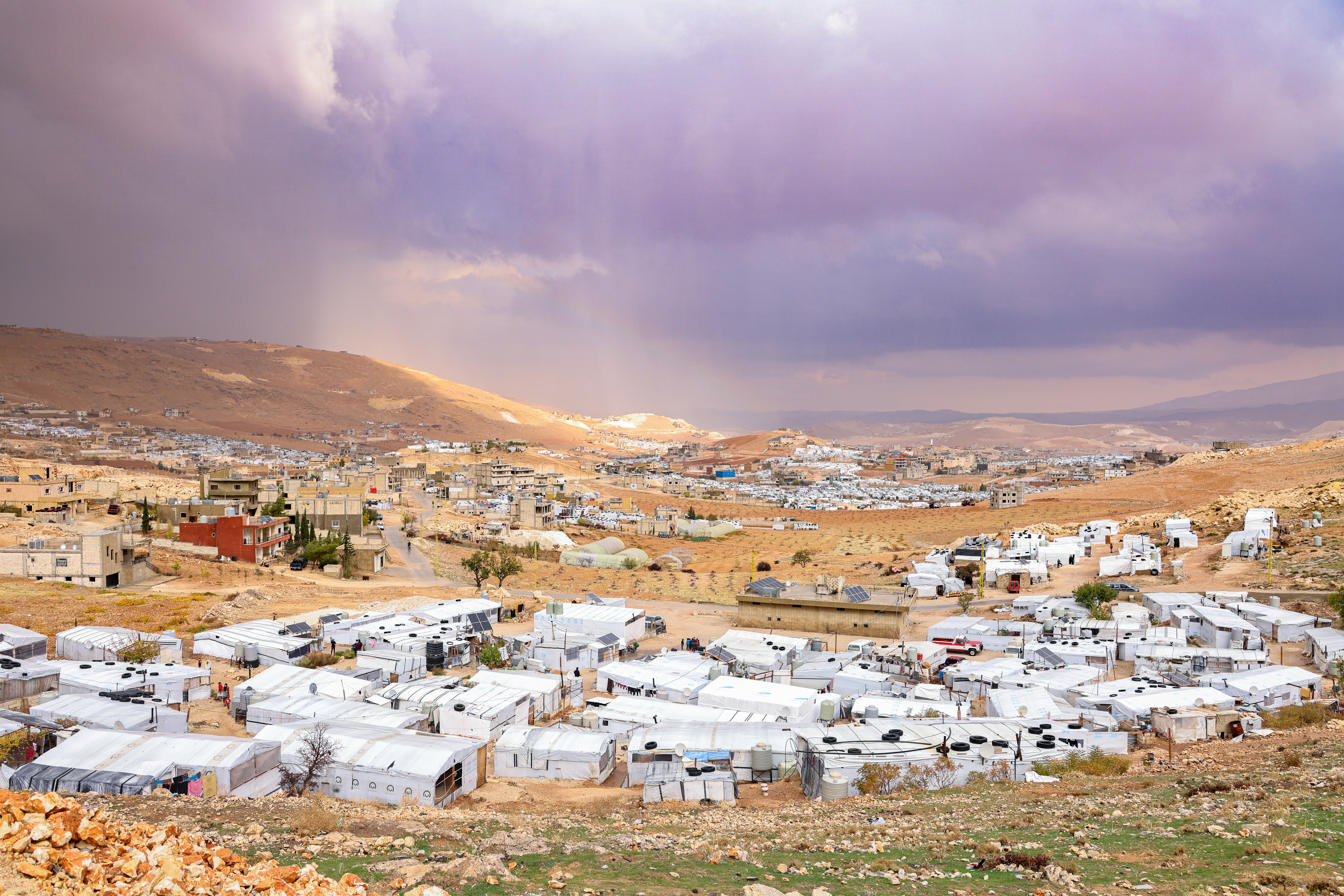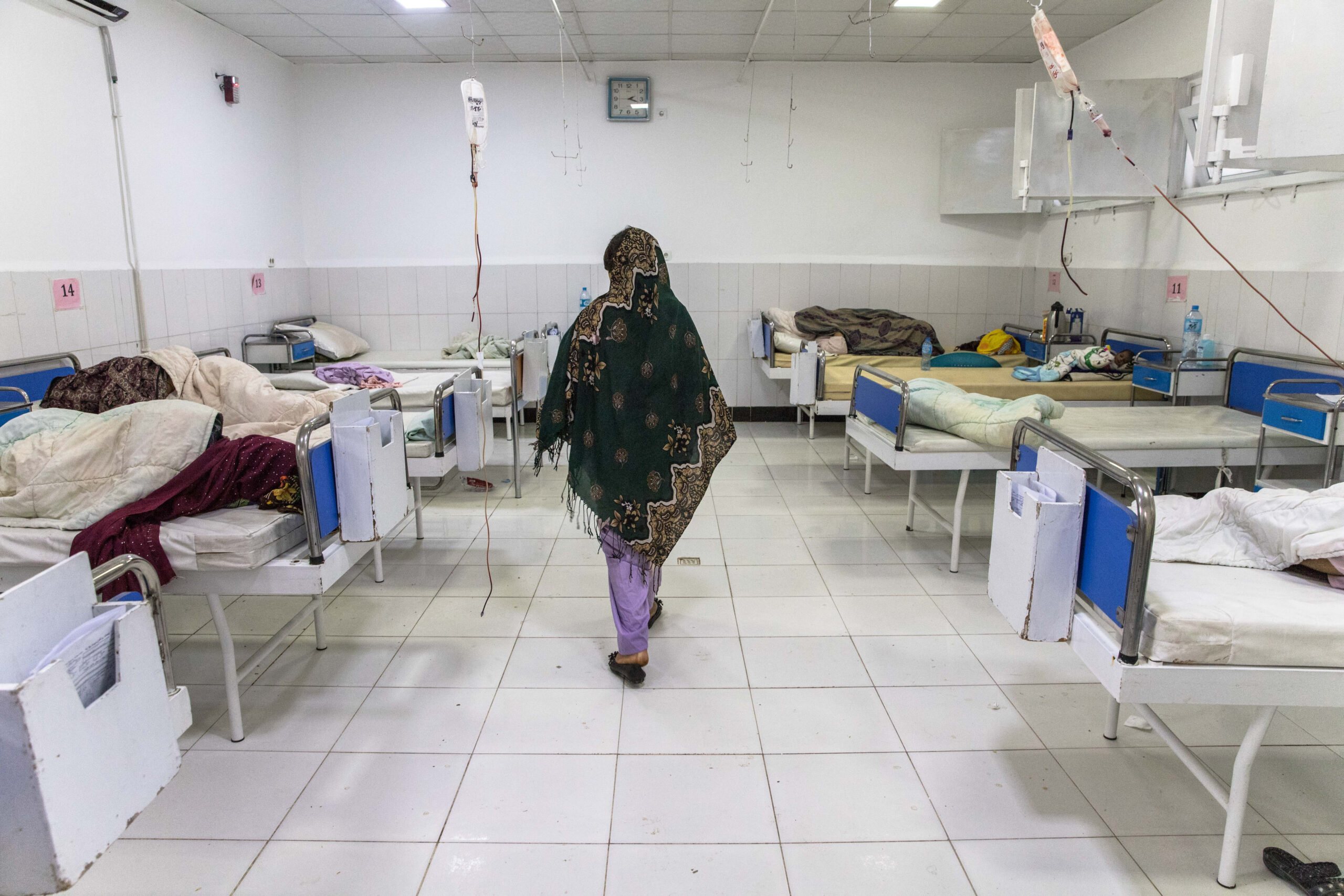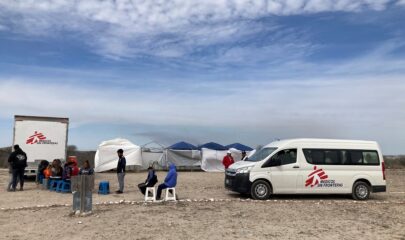Pregnant women from refugee communities in Malaysia have limited access to essential maternal healthcare, which can have deadly consequences for women and their babies.
According to a 2019 study by the United Nations High Commissioner for Refugees (UNHCR), the maternal mortality rate among refugees in Malaysia was estimated to be 62 per 100,000 live births – significantly higher than the national average of 36 per 100,000 live births.
The same study also found the leading causes of maternal death among refugees in Malaysia were postpartum hemorrhage (heavy bleeding after birth) and hypertensive disorders (conditions causing life-threatening high blood pressure) during pregnancy. While there is no updated data available, from what Doctors Without Borders/Médecins Sans Frontières (MSF) teams have witnessed, there seems to be no improvement in the situation.
LACK OF LEGAL STATUS
Malaysia is not a signatory to the UN’s 1951 Refugee Convention and does not have domestic laws recognizing and protecting refugees. This means refugees do not have legal status in the country, which limits their access to healthcare, work and education.
Refugees registered with the UN in Malaysia are entitled to a 50 per cent discounted foreigners’ rate in public healthcare services, but most refugees still cannot afford the reduced fee.
Accessing private health facilities can cost a refugee up to the equivalent of $150 for pre- or postnatal screenings, while deliveries and emergency obstetric care can cost the equivalent of hundreds of dollars.
Nur,* a Rohingya woman who is a refugee in Malaysia and expecting her second child, says she could not afford maternal healthcare at a private or public healthcare facility. “With my husband’s income, rental and family expenses are barely covered. If we book a prenatal check-up at a private clinic, we could spend up to MYR 600 [roughly $180],” she says.
THREATS OF ARREST AND DETENTION
The Ministry of Health requires healthcare providers to report undocumented migrants, including refugees and asylum seekers, to the police or immigration services. As such, refugees who lack UN documentation risk threats of arrest and detention when seeking treatment at public medical facilities, especially when they are unable to pay medical fees, resulting in fear and distrust of public healthcare staff.
To address the needs of refugees and asylum seekers in Malaysia, MSF is providing free primary healthcare and mental health services through our clinic in Butterworth, MSF-run mobile clinics in Penang and activities in immigration detention centres.
ALARMING INCREASE IN PATIENT NUMBERS
MSF also supports an increasing number of survivors of sexual and gender-based violence, including survivors of human smuggling. Our teams refer unregistered refugee patients with heightened medical or protection needs to UNHCR for expedited registration to facilitate their access to healthcare.
In 2022, MSF conducted 4,081 sexual and reproductive healthcare consultations at our clinic in Penang, including pre- and postnatal care and family planning.
“Deliveries and emergency obstetric care can cost refugees hundreds of dollars.”
“The number of sexual and reproductive health consultations carried out by MSF staff doubled from 200 consultations per month early in 2022 to some 500 consultations per month by the end of the year,” says Dirk van der Tak, MSF’s country director in Malaysia.
“This could be an indication of greater awareness of sexual and reproductive health services we offer but could also mean an increase in needs. We see a high number of consultations for late-in-term pregnancies.
“And around 15 per cent of our consultations were related to teen pregnancies in the first quarter of 2023, which is a concern because adolescent mothers are at greater risk of complications such as eclampsia [life-threatening high blood pressure in pregnancy], anemia, premature birth or stillbirth. We know that the number of girls we see at the clinic is likely only a fraction of those in need of services.”

Butterworth. Malaysia, 2022. © Kit Chan
While the number of prenatal consultations has increased in MSF’s clinics, they represent only a small portion of the needs of women from refugee communities in the country.
“There were 183,790 refugees and asylum-seekers registered with the UN in Malaysia as of the end of January 2023, 34 per cent of them women,” says van der Tak. “Many more refugees in the community are struggling to access basic healthcare. Services should be made more inclusive for refugees to ensure they have access to safe, adequate and affordable maternal healthcare.”
Prenatal consultations at MSF clinics represent only a fraction of the needs.
MSF has been providing primary healthcare, mental health services and a response to sexual and gender-based violence for refugees and asylum seekers in Malaysia since 2015. In 2018, MSF established a clinic in Butterworth, currently offering services to 900 to 1,000 patients a month.
*Name of patient changed to protect identity.
Bangladesh: Rohingya refugees’ food rations reduced
In March 2023, citing lack of funding, the World Food Programme cut food rations for nearly one million Rohingya refugees living in Cox’s Bazar – home to the world’s largest refugee camp – by 17 per cent.
This brings the number of calories provided per person to below the accepted minimum standard of 2,100 calories per day, putting people’s health at risk.
Last year, 12 per cent of pregnant women receiving prenatal care at Doctors Without Borders/Médecins Sans Frontières (MSF) clinics were diagnosed with malnutrition and 30 per cent were anemic. Twenty-eight per cent of babies born in Kutupalong hospital and Balukhali clinic had a low birth weight, heightening their chance of becoming sick and malnourished.
Many refugees in the camps also suffer from chronic diseases, including heart disease, hypertension and type 2 diabetes. On a reduced diet, they will likely need more medical attention from health services, which are already struggling to deal with frequent outbreaks of scabies, dengue fever and cholera.
MSF is concerned that a reduction in food rations will also heighten the sense of desperation already prevalent throughout the camps and could drive more Rohingya to undertake highly dangerous sea and land journeys in search of a more hopeful future.
MSF is committed to providing services to Rohingya refugees for as long as needed. But, as MSF country representative Claudio Miglietta says: “Covering more medical needs in Cox’s Bazar is outstripping MSF’s capacities. The number of aid organizations working in the camps has declined by almost 80 per cent. Donors must reprioritize the Rohingya and reaffirm their funding commitments.”


